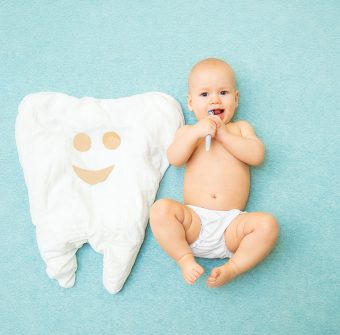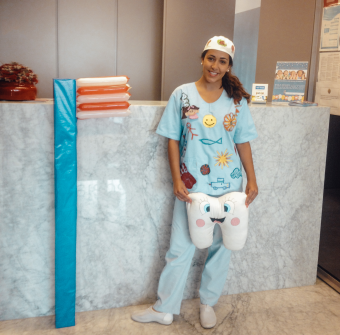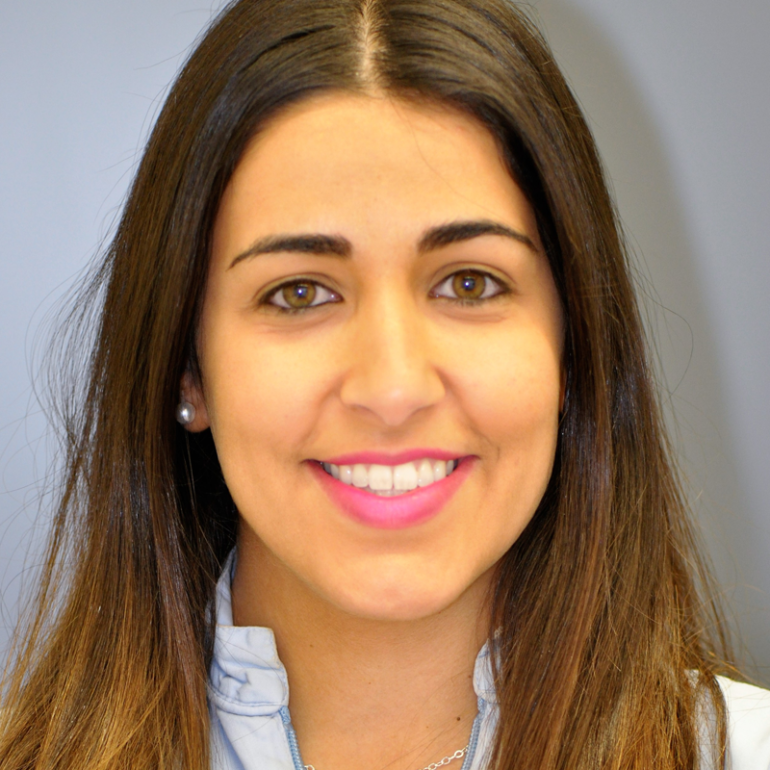Pediatric dentistry
Pediatric Dentistry is the area of dentistry responsible for the prevention, diagnosis and treatment of pathologies and changes in the mouth and teeth of children and adolescents, from 0 to 18 years of age. The Pediatric Dentist is also responsible for monitoring patients with special needs cognitive and motor skills, in any age group.
This is a differentiated specialty whose treatments are carried out in different stages, suitable for the children’s growth process.
Prevention
Pregnancy and puerperium
Did you know that our Pediatric Dentist accompanies children from an early age, often when they are still in their mother’s womb? As the process of teeth formation begins early in embryonic life, preventive measures must be instituted even before the baby is born.
During pregnancy, parents should be encouraged to acquire eating habits and oral hygiene that promote the health of their children. Thus, our Pediatric Dentistry Consultation also included the Pregnant and Puerperal Consultation, in accordance with the National Program for the Promotion of Oral Health (dental check).

First Pediatric Dentistry Consultation
AYour child’s first appointment is extremely important, with the first experience at the dentist being a determining factor in the children’s oral health and future collaboration.
You should schedule your first Pediatric Dentistry appointment during your first de year of life or as soon as your first teeth are born. Always bet on prevention and bring your child to our clinic when you do not have any complaints. Clarify all your doubts with our professionals and contribute to your little ones’ full oral health.

Our enchanted space
Discover our facilities and show your children the fun moments of our Pediatric Dentistry consultation. Don’t doubt they’ll want to come back!

Milk Teeth - Guidelines for Parents
Dental caries and periodontal disease, which are the main dental problems, often start in childhood and their sequelae can be devastating physically, emotionally and socially. Although severe, these diseases can be easily prevented by adopting adequate habits of nutrition and oral hygiene, but the success of these actions depends on the active participation of parents, children and health professionals.
The deciduous teeth, also called milk teeth, begin their formation around the sixth week of embryonic life during the mother’s pregnancy and, from the sixth month of life, the process of tooth eruption begins, generally being the lower incisors the first teeth to be born.
At approximately thirty months of life, the process of eruption of the primary dentition will be complete and the children will have 20 teeth in their mouths, ie, eight incisors, four canines and eight molars.
As the process of tooth formation and tooth eruption is complex and begins in embryonic life, preventive measures must be instituted even before the baby is born. During pregnancy, parents should be educated and included in a preventive dentistry program that emphasizes the importance of acquiring good eating habits and oral hygiene and how these habits will favor the oral health of their children.
During breastfeeding, parents are recommended to sanitize the baby’s oral cavity as soon as the first tooth appears, using special finger cots, baby toothbrushes or moistened gauze. In many children, the eruption of primary teeth is preceded by increased salivation and irritability during the day. At this time, the child may intensify the habit of sucking the thumb or rubbing the gums, lose appetite or have gum changes.
With the eruption of more teeth, parents should start using the brush toothpaste and proper toothpaste to sanitize your children’s oral cavity after meals, starting in a specific area of the mouth and proceeding in an orderly fashion until plaque is removed, always encouraging children to participate in this process.
Toothpaste for babies and children up to 7 years old are not the same as for adults, they should have a less strong taste with pleasant aromas and adequate amount of fluoride; up to two years of age, they should not have more than 250 ppm (parts per million) of fluorine, always check the back of the package, as the child swallows the toothpaste and excess fluoride is harmful to tooth formation; from 2 to 7 years, the amount of fluorine should be less than 500 ppm of fluorine; from 7 to 12 years it can go up to 1500 ppm of fluorine, which is generally the maximum amount of fluorine in toothpastes sold in large supermarkets.
One of the processes of motivating children to brush their teeth is to wash our teeth with the child in your arms, leaving them, if they want, to pick up the brush and help us wash our teeth, in this way, they will want to imitate us and leave us. brush your teeth.
Although children develop the necessary motor skills to use a toothbrush, it is essential that parents supervise this activity and assume responsibility for brushing their children’s teeth. as the child acquires manual dexterity, this responsibility can be transferred to the children, but as long as the Dentist does not observe this skill in the child, this task must be performed by an adult.
The health professional should instruct parents on brushing methods, flossing techniques, and the use of fluoride and plaque revealing agents. In this way, when the child tries to remove the plaque, parents can promote learning through the use of revealing substances, showing the child the areas in which oral hygiene needs to be improved.
Clinical Team

